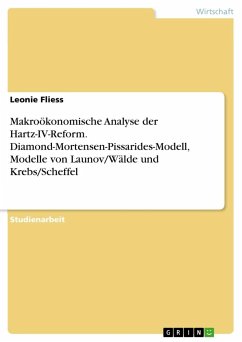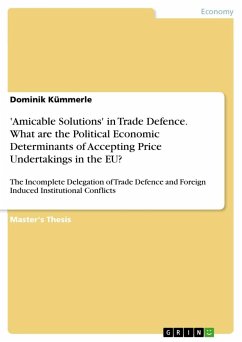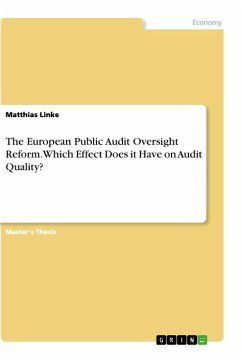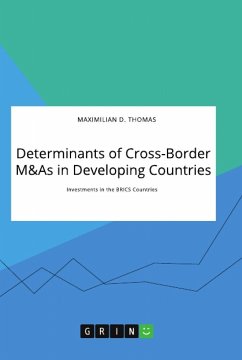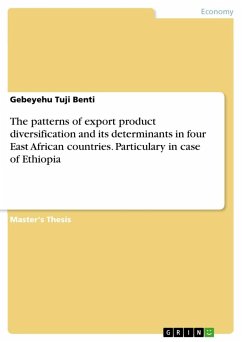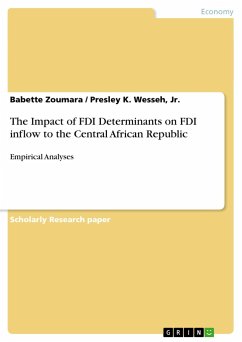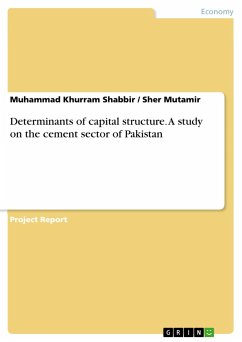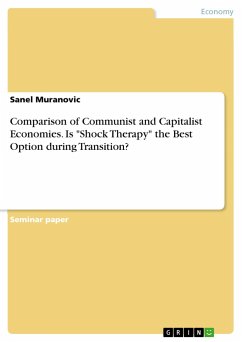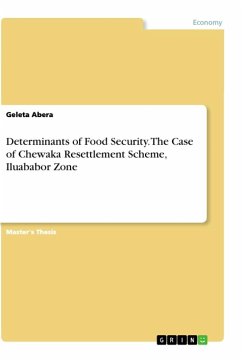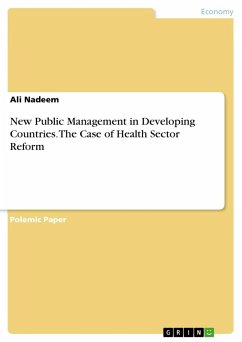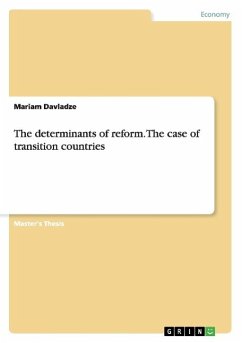
The determinants of reform. The case of transition countries
Versandkostenfrei!
Versandfertig in 1-2 Wochen
19,99 €
inkl. MwSt.

PAYBACK Punkte
0 °P sammeln!
Master's Thesis from the year 2015 in the subject Economics - Other, grade: A, Charles University in Prague, language: English, abstract: This work estimates the reform determinants for 24 transition countries using spatial econometric by maximum likelihood estimation. In the paper, determinants already used by other authors are included, as well as two new variables - export and foreign direct investments measures. Another distinctive characteristic is inclusion of spatial endogenous and exogenous variables as explanatory variables through the use of weights matrix - W. Spatial interaction is...
Master's Thesis from the year 2015 in the subject Economics - Other, grade: A, Charles University in Prague, language: English, abstract: This work estimates the reform determinants for 24 transition countries using spatial econometric by maximum likelihood estimation. In the paper, determinants already used by other authors are included, as well as two new variables - export and foreign direct investments measures. Another distinctive characteristic is inclusion of spatial endogenous and exogenous variables as explanatory variables through the use of weights matrix - W. Spatial interaction is reflected by scoping on the importance of distance and informational spillovers. Obtained spatial interaction is positive and high in value. Coefficient rho varying in the range 0.22 to 0.71 indicates that in open economy countries adopt success and failure of reforming in neighboring countries. From spatial exogenous coefficients I obtained significant democracy, inflation, export and FDI coefficients. It gives idea that processes occurring in one country: level of investments, quality of democracy and level of domestic production is affecting and stimulating reforming in countries under similar economic or geopolitical status. I also found that the initial effect of GDP growth, FDI and democracy are important determiners of reforming process.



